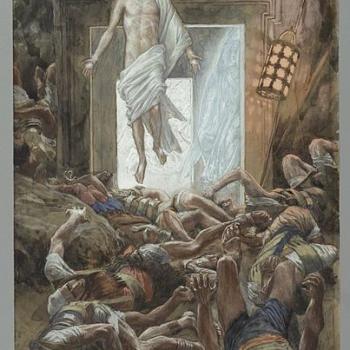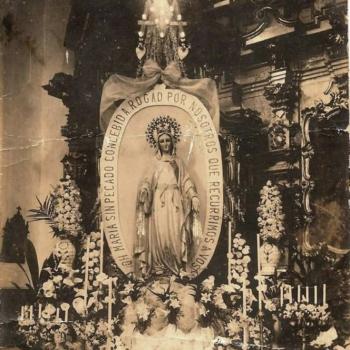Christians believe in the resurrection of the dead. As Paul said, "If there be no resurrection of the dead, then is Christ not risen: and if Christ be not risen, then is our preaching vain, and your faith is also vain. Yea, and we are found false witnesses of God" (1 Cor. 15:13-15).
Perhaps the oldest expression of Christian belief is found in the claim "God hath raised him from the dead" (Rom. 10:9), a phrase repeated throughout Paul's letters. Beginning particularly with the rise of modern thought and the development of modern science, many began to question whether that belief could be taken literally. Yet even among those who doubt that Jesus' resurrection was literal, few would call themselves Christians without asserting some form of belief in the resurrection.
A belief in personal resurrection usually goes with that affirmation. Paul certainly held the two beliefs together: "If we have been planted together in the likeness of his death, we shall be also in the likeness of his resurrection" (Rom. 6:5). As with Jesus' resurrection, few who call themselves Christians don't affirm a belief in some form of personal resurrection.
Though there are probably exceptions, it is safe to say that Mormons are among those who believe in Jesus' literal resurrection as well as in a literal personal resurrection: "The death of Christ shall loose the bands of this temporal death, that all shall be raised from this temporal death. The spirit and the body shall be reunited together in its perfect form; both limb and joint shall be restored to its proper frame" (Alma 11:42-43).
I have faith in Jesus' literal resurrection and that there is literal personal resurrection. But the importance of resurrection is less in its literal character than in the meaning that infuses what we say when we repeat the ancient formula that he has been resurrected and add to it that we will be. As in the rest of divine history, the events we speak of are as important for what they say about God and his order as they are in themselves.
Of course the most obvious meaning of resurrection is that it is the ultimate triumph over death. But that triumph must be seen in relation to the Christian explanation of death, the Fall. We die because we live in a fallen world. So resurrection signals not just the triumph over death, but God's recreation of the world and its redemption from the fall. As the LDS Articles of Faith say, with the resurrection "the earth will be renewed and receive its paradisiacal glory," a glory that will be social as well as natural.
Joseph Smith was very much a literalist with regards to the resurrection. But for him it was not just to be a resurrection of individuals. It would be the resurrection of the natural and the social worlds, and he was particularly keen on the latter. To use his words, "that same sociality which exists amongst us here will exist among us there" (Words of Joseph Smith, 169).
Mormonism assumes that if the commandments to love God and to love our neighbor are similar, if not in fact the same (Mt. 22:37-40), then resurrection into the presence of God is also resurrection into the presence of those whom we love and those whom we have been taught to love.
That is what the LDS doctrine of sealing is about: we can be sealed to one another as family, and each family to another ad infinitum, creating a web that potentially includes all of humanity and has God at its center. The promise is that the relationship I have with my spouse and our children is a relationship that can be duplicated endlessly with other persons in the presence of God.
For Mormons, baptism is required of the individual. It initiates us into the community of God in an act in which we imitate the death of Christ and his resurrection and anticipate our own death and resurrection. And in that imitation and anticipation we are born anew in the world, living representations of the possibility and expectation of human renewal.
In our temples we have another rite, sealing, which stands at the highest point of our liturgical practices. We are sealed to one another as husbands and wives. Children are sealed to parents. And we act as proxy for our deceased ancestors, sealing them to each other and to ourselves.
In being sealed to one another we are born yet anew, this time not as mere individuals but as part of a family that extends outward to Zion, the divine community. Sealing is the rite by which we imitate and anticipate the renewal of human society.





